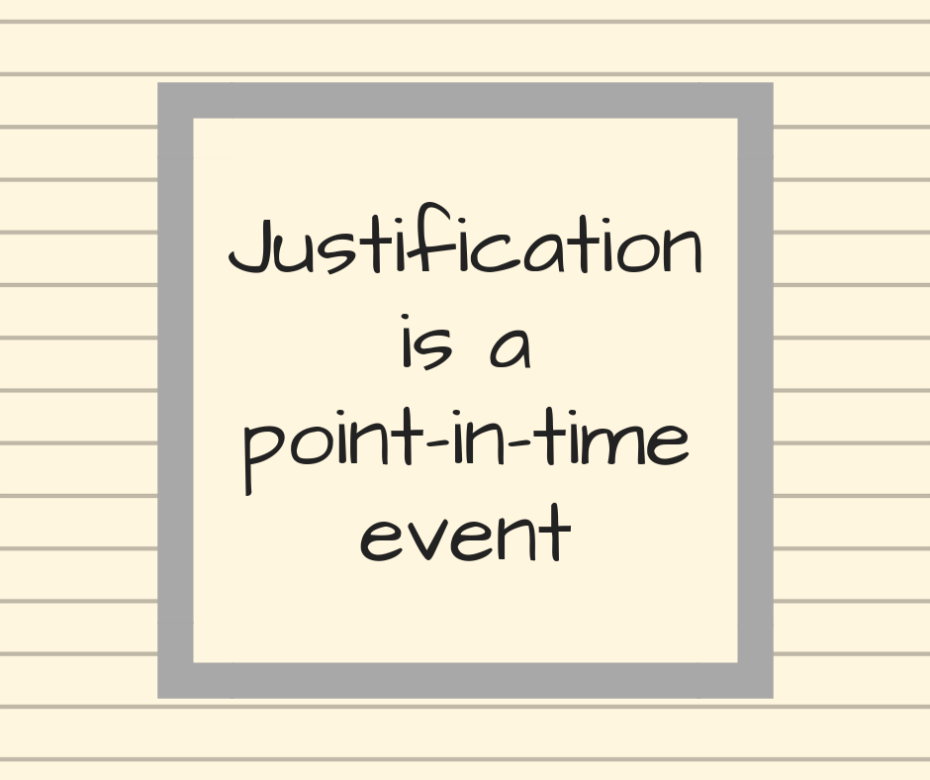Rev. Amos Binney was a Methodist preacher who wrote a short systematic theology called Binney’s Theological Compend (published in 1840) explaining “Biblical Methodism” (see here). The “improved” version edited by Daniel Steele is very readable and succinct. I think it is a model for how a short systematic theology should be done, and I plan to write a similar book from a Free Grace perspective.
Not that I agree with everything Binney says.
I find it helpful in parts and unhelpful (i.e., false) in others.
As a good Methodist, Binney rejects the Calvinistic notion that you must be regenerated before you can believe:
Errors respecting saving faith: …That the unregenerate are incapable of the act of saving faith, and that it does not precede regeneration as a condition, but follows it as a result. Refuted in John 3:18, 36; Acts 10:43; Rom 1:16; 3:26; Eph. 1:13.
I would strongly agree with that statement. Binney’s prooftexts show the salvific benefits that follow faith.
However, in that same section on saving faith, there’s much error. Here’s an example:
The faith by which we are justified is present faith; faith actually existing and exercised. John 1:12; 3:18, 36. (105. What is the method of justification? What three things are to be considered? What is the origination cause? Meritorious? Instrumental? What is the faith by which we are justified?)
We are not justified by to-morrow’s faith foreseen, for that would imply justification from eternity. Neither are we justified by yesterday’s faith recorded and remembered, for that would imply justification that is irreversible. Ezek. 18:24; 33:12-13
Binney says we are only justified by “present” faith. He means you need continuous faith to stay justified. If you stop believing, you stop being justified. Future faith does not count (he’s right about that). But he also says that “yesterday’s faith” does not count, because “that would imply justification that is irreversible.”
Exactly.
Justification is irreversible.
When was Abraham justified? Not by present faith. He was justified the very night he believed God’s promise. The next day, when he woke up, he could look back and say he was justified that night. A year later, he could look back and still say, “I was justified that night.”
Justification is a point-in-time event.
Binney cites John 3 as proof you must believe. Earlier in that discussion with Nicodemus, Jesus used the example of Israel’s looking at the snake on the pole to be healed. Did they have to continuously look at that snake their whole life to stay healed, or was it a point-in-time event? It happened in a moment. It’s the same with justification or being given the gift of everlasting life. It happens in a moment. It happens the second you believe in Jesus for what He promises.
Binney cited Ezekiel as proof that yesterday’s faith is not enough to be justified in the present. Those passages do not support his position. They are not about being born-again. Rather, they concern temporal judgment for sins and crimes committed against God. Ezekiel warned that having a history of good deeds would not save you from the punishment of the sins you commit today. That’s common sense. If you obey the law for 30 years and then commit murder, you’ll be charged for that murder today. But what does that have to do with justification by faith?
The condition and consequences of God’s temporal judgment are different from the condition and consequences for receiving the free gift of eternal life. Avoiding temporal judgment does depend upon your behavior. It is a moment-by-moment experience. But justification is by faith. It is a point-in-time event. Binney was comparing apples and oranges.


